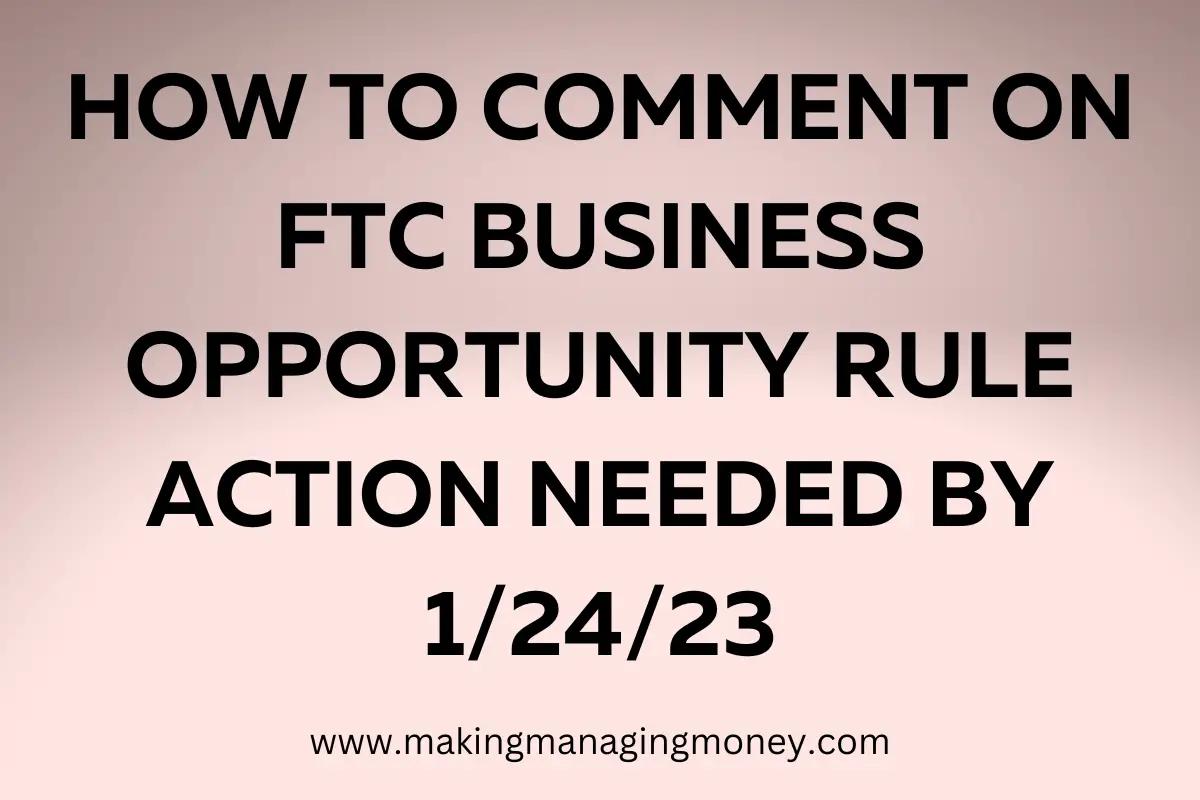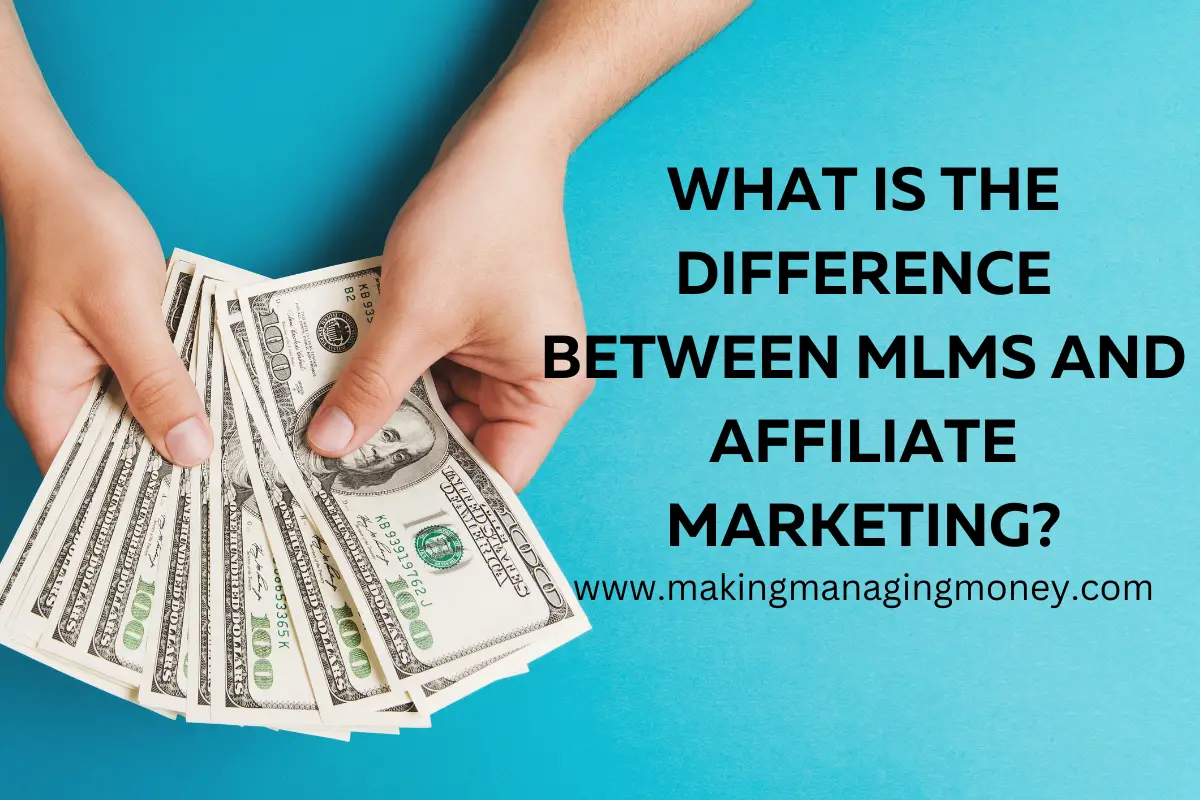Are MLMs Pyramid Schemes?
Today we are talking about what MLMs are and if they are a Pyramid Scheme. We’ll start with the facts and then I’ll give my opinions on MLMs.
The Multi-Level Marketing (MLM) structure is a legal business model, and not a pyramid scheme in the eye of the law as long as products are being sold to customers and not just other consultants. However, nearly all of the participants in an MLM do not make a living wage, and therefore you should do a lot of research if you are thinking about joining an MLM.

What Does MLM Stand For?
MLM is a Multi-Level Marketing Business – also called network marketing, direct sales, social selling, or pyramid selling. Individuals sell products or services directly to other people.
How do people make money in MLMs?
Individuals who join an MLM are independent contractors. This means you are not an employee of the MLM company and will not receive a salary. The compensation plans are commission based. Which means you earn money:
- Through making a commission off products or services sold
- By recruiting other people to the MLM and earning a commission off their sales as well
Typically there is a large focus on recruitment commissions. Once you recruit someone, they (and anyone they recruit) become your downline. The person that recruited you, and those that recruited them are your upline. https://www.consumer.ftc.gov/articles/multi-level-marketing-businesses-and-pyramid-schemes
How Much Money can be made in an MLM?
A lot of MLMs claim you can make millions. This is TRUE (but barely)! Only a very small percentage of any MLM company makes above a living wage. Then an even smaller percentage above that is making the top tier earning potential. I’ll provide two examples:
Monat – According to Monat’s 2020 Income Disclosure Statement on average, 99% of Monat reps made less than $10,000. Only .06% (not 6%, about half of 1%) earned in upper tier brackets that made over a living wage. According to Monat’s income disclosure, about .01% made on average over $1M.
Rodan & Fields – According to Rodan & Fields’ 2020 Income Disclosure Statement on average, again, 99% of Rodan & Fields reps make less than $10,000, and only .63% (again, less than 1%) are in the upper tier brackets making over a living wage.
For anyone that joins an established MLM, it is practically impossible to reach the top 1% needed to even make a living wage. It is my opinion they will never be in the top percentage that makes the most money. In any MLM that has a large component of compensation based upon the downlines sales commissions, joining an established MLM would take an extremely unique scenario for you to make it that far up the pyramid.
How to tell if a company is an MLM?
If you’re offered a business opportunity to earn commissions from selling products, here are some ways that you can tell if it is an MLM.
- First, google it! Just google the company name and ask if it’s an MLM and you should get an answer pretty quickly
- You can also check this master list of active MLM companies: The MLM Master List – The Anti-MLM Coalition (mlmtruth.org)
- Look for characteristics of an MLM. If there is a large focus on recruiting other individuals to sell products to make commissions, it’s likely an MLM.
- If the company is not hiring employees but is recruiting independent sellers, consultants, partners, etc. this would be a sign the business could be an MLM
What are some MLM company examples?
Some common MLMs that you may have heard of are:
- Thirty-one – https://www.mythirtyone.com/us/en/
- Pampered Chef – https://www.pamperedchef.com/
- Monat – https://monatglobal.com/
- Color Street – https://www.colorstreet.com/
- Norwex – https://norwex.com/
And many more…
What is a Pyramid Scheme?
A pyramid scheme by definition is where participants attempt to make money only by recruiting other members, and no product or service is being sold. There is a focus on recruiting new participants and there are promises of high returns on investment.
One type of pyramid scheme is a Ponzi scheme. This is when an individual promises those that invest money with them (the investors) will receive high rates of return. This person continues to recruit people, and pays returns to the first set of investors with the money received from the second set of investors, and so on. In addition, typically the person who started the scheme is using the invested money to fund their own lifestyle. Eventually, the money will dry up and it comes to light that the entire operation was a scheme.
So – Are MLMs Pyramid Schemes?
Legitimate MLMs are not a Pyramid Scheme in the same ways listed above. MLMs are a legal business model. There is legal precedence that allows them to be in business. MLMs sell a product or service and therefore do not technically fit the legal definition of a pyramid scheme that could be prosecuted in a court of law. However, just because a pyramid scheme is illegal, doesn’t mean there are any out there that haven’t been caught. Something operating as a legitimate business could be a pyramid scheme that has gone undetected. If an MLM is making money primarily from selling products to the independent consultants that are selling from the company and not selling to actual customers, this would be more in line with a pyramid scheme. There is no publicly available information or reporting requirements for MLMs to determine how much product is sold to consultants vs. customers. Therefore, there is a strong possibility most MLMs are functioning like a pyramid scheme but it has gone undetected.
Are MLMs Ethical?
After a lot of thought, research, and experience being recruited by participants in MLMs, I do not believe these are ethical business models. I would not participate or recommend anyone join an MLM without really understanding the odds and culture around MLMs. I think it’s really important that anyone who decides to give it a try goes in with eyes wide open. Below are some of the reasons I personally do not love the MLM model.
Targeted audiences
MLMs seem to specifically target working moms, stay-at-home moms, military moms and wives, and other individuals who are looking for a way to support their families.
Not taking into consideration basic business concepts, like supply/demand.
From everything I’ve read and seen, there is always encouragement for more and more consultants so that individuals can create downlines to create passive commissions. Franchised businesses or an individual starting a traditional business typically would look at the existing market to determine if there is viability for the new business to succeed. There are no market analyses determining if another MLM seller is beneficial from anything I have ever read. This implies that it is the company’s financial interest is the main priority. Not those they have sold their products.
Toxic pressures are put on the sellers.
I cannot even count the times I’ve seen these MLMs state as long as you work hard, you’ll succeed. Not true.
First off, we’ve seen the numbers above, the majority of people in these organizations are not successful (if you define success as making money!)
There are many other factors that go into making a sale than “working hard”. There have to be quality products, priced properly with adequate demand. None of those factors are within a seller’s control (except possibly doing a sales pitch to try to create some demand).
Final Opinions on the question: Is an MLM a Pyramid Scheme?
The biggest takeaway for me goes back to the numbers (it’s the accountant in me). I think it is very unethical that you have people selling the dream of making money, freedom to spend time with your family, etc. and there is absolutely no basis to it as these claims are untrue for the majority of MLM participants. I truly feel like these MLMs are misleading and unethical. Are they illegal? I think there is a good chance there are many that could be considered pyramid schemes. But with no way to track where an MLMs revenue is coming, it is impossible to say. The numbers show that the majority of individuals who sign up to sign for MLMs likely spend more of their own money buying products than any commissions they make. This has a negative impact on their personal financial situation (out money) and helps those further up the “pyramid” by earning commissions on those sales. MLMs only benefit those at the top of the “pyramid”, and the numbers tell that story. On top of all of this, in my opinion, many MLMs have a toxic culture.





